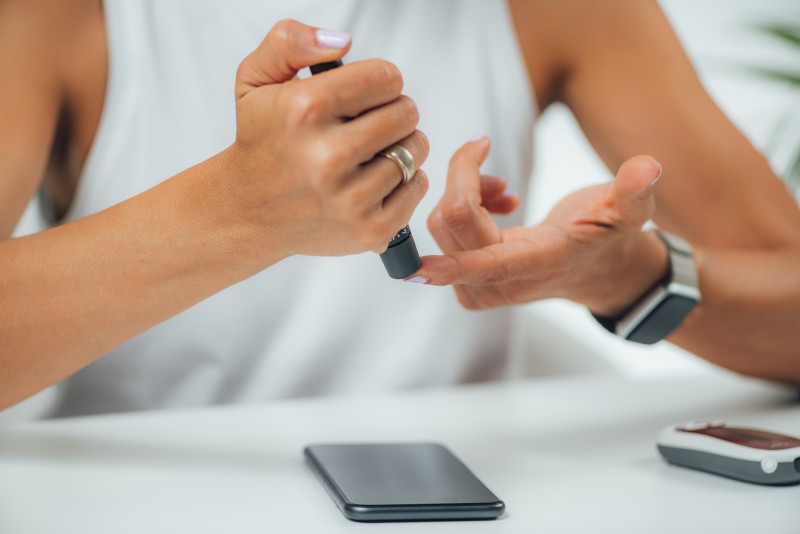It is standard procedure for someone with diabetes to routinely get their HbA1C tested. Following is a summary of what HbA1C is and some dietary supplements that can help someone manage those levels in their bodies.
The HbA1C Marker & Why It Matters
The Hemoglobin A1C (HbA1C, or A1C) is a test that evaluates long-termblood-glucose levels. The A1C is relevant and useful for diabetic individuals as well as those at risk for developing diabetes. HbA1C measures are used to diagnose diabetes, as well as monitor the status of blood-glucose in someone living with diabetes.
The A1C's name is derived from the metric which it measures. The HbA1C quantifies the percentage ofhemoglobin A proteinsin a person's blood that have glucose attached to them. This metric is unique because it indicates the average blood glucose levels for that person in the 3 months prior to the test. A medically normal A1C measure is 5.7% or less, while 6.5% or over medically indicates diabetes. Anything in between would deem a person "prediabetic."
For someone with diabetes, or at risk for diabetes, the implications of A1C test results are important. The results of a single A1C test will determine if and when more testing is needed, as well as what lifestyle changes or medications would be necessary and helpful to manage or reduce blood glucose.
Supplements to Reduce A1C and Blood Glucose
Nutrition is critical to managing diabetes, as nutrient intake could affect the status of blood glucose in the body. A1C is a critical marker for addressing diabetes. The nutrients mentioned here are known to address A1C directly, and they could contribute to the improvement of other health markers as well.
Folateis regarded for its ability to both reduce insulin resistance and support glucose homeostasis. Both of these applications are given credit forfolate's reducing effecton HbA1C. Supplementing with folate, or folic acid, can make a big difference in A1C levels for many people. A meta-study on folate showed it could reduce A1C by .46% on average, which is a hefty amount.
Alpha-lipoic acid (ALA)is an antioxidant made and used by the body. Regularly taking in alpha-lipoic acid has been shown in a large meta-study to reduce HbA1C levels by anaverage of .35%.ALA can also improve insulin sensitivity.
Vitamin Dsupplementationhas been shown to reduce A1C levels by a significant amount, according to ameta-study of 29 separate trialspublished in 2017. The average reduction in A1C was just over .3%, which could be enough to move from a pre-diabetic level down to a normal one. Individuals with a high vitamin D intake are far less likely to develop type II diabetes. Supplementing with vitamin D can regulate other health markers as well, such as lipid profile and chronic inflammation.
Ginger, takenas a supplement,is supported by some research as a means to reduce A1C and blood glucose. It can also help maintain a healthy heart by reducing some heart markers associated with diabetes. Ginger is regarded as a popular supplement for diabetes management.
Acetyl-l-carnitineis a form of L carnitine, a substance produced and used by the body. Supplementing with acetyl-l-carnitine could possibly contribute to a reduction in HbA1C levels, as well asfasting blood-sugar levels.
The importance of HbA1C for those with diabetes, and those at risk, is high. If you're not diabetic but are at risk, working to lower your A1C could be important to your long-term health. Consider how the nutrients and substances in these supplements could help. It's recommended that you talk to your healthcare provider about the potential benefits of these before using any of them.

